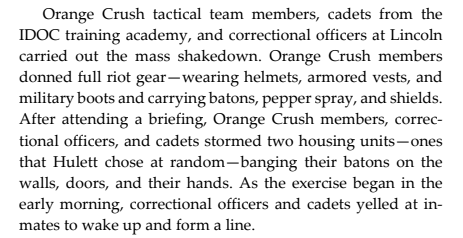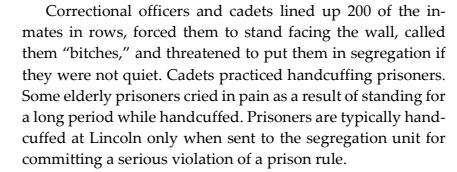Let's take a little walk through a court decision that I read this week. It may give #inhousetwitter hives.
The defendant, Correctional Healthcare, now goes by the Orwellian name "Wellpath." It is one of the largest for-profit providers of medical care to prisoners & jails.
The defendant, Correctional Healthcare, now goes by the Orwellian name "Wellpath." It is one of the largest for-profit providers of medical care to prisoners & jails.

A quick run down of the facts. When Mr. Moreno was 18, his family brought him to a county service for his mental health crisis. Police were called to help transport him. Rather than help him, they say there was an outstanding warrant for a misdemeanor, so they took him to jail.
The jail put him in a cell with no bedm sink, toilet, or drinking water, and left him there. He didn't do well. 

Sadly, not surprisingly, Mr. Moreno died. He had lost 38 pounds of 8 days.
His parents sued. Good for them.
In 2018, their lawyer wrote the medical provider, telling them they were about to be sued and told them to preserve all records.
His parents sued. Good for them.
In 2018, their lawyer wrote the medical provider, telling them they were about to be sued and told them to preserve all records.
For non-lawyers, this is something called spoliation. It's when you get rid of evidence you are supposed to hold on to. It's a bad thing. But there are rules that sometimes accidents happen.
Here, it was the same lawyer overseeing discovery responses and the email purger -- the director of the "litigation group."
OK, but why? Well, under oath, Wellpath's CIO had this exchange:

OK, but why? Well, under oath, Wellpath's CIO had this exchange:


This did not make the judge happy. Not at all.
The judge was further not pleased by the argument that, well, this email purge affected all their cases. 

And if you are a lawyer who has a case against Wellpath, Correctional Healthcare, or Correct Care Solutions, check your dates.
/fin
/fin
• • •
Missing some Tweet in this thread? You can try to
force a refresh










